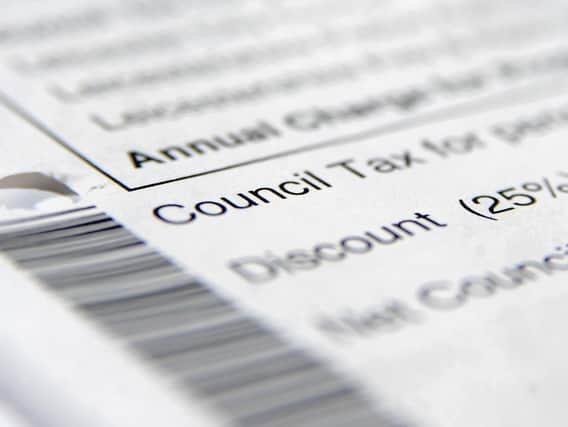What tax will I pay as a landlord? - Gareth Shaw


Gareth says…
First – the very basics. Rental income is added to any other income you get – salary, pensions etc, and tax at income tax rates – between 20 per cent and 45 per cent in England, Wales and Northern Ireland, and between 19 per cent and 46 per cent in Scotland.
But the actual rental income that you earn is not the only thing that could be subject to income tax. It also includes the services you provide as a landlord – so if you pay someone to clean a communal area, or decide that you will pay the water bill on behalf of the tenant and receive the cost from them, this will be recorded as taxable income.
Advertisement
Hide AdAdvertisement
Hide AdThis can also include any remaining deposit that is left over.
This might sound intimidating, but you won’t necessarily pay income tax on all the revenue generated from the property and the tenants. You can deduct expenses, and you will pay income tax on the profits you have remaining.
These expenses must be incurred as part of running and maintaining the property. As I mentioned earlier, you will have to count the income you receive from the payment of a water bill, but you can then deduct that bill as an expense.
Other expenses could be council tax, utility bills, cleaners, legal and accountancy fees and direct costs, such as advertising for tenants.
Advertisement
Hide AdAdvertisement
Hide AdIf you decide to do some structural work on the property, perhaps to prepare it for tenants, you won’t be able to deduct that from rental income. But you could use this to offset a capital gains tax bill in the future when you decide to sell the property.
You can also claim tax relief on replacing goods in the property – cookers, washing machines, kettles etc. The key here is ‘replacing’ – you don’t get tax relief for kitting out the property, only when you replace items that are no longer in use.
The rules here are a little complex – you can only get tax relief as a like-for-like replacement. Say you swapped a £400 fridge for a £700 fridge for your tenants – you’d only be able to get tax relief on the first £400 of that purchase. There are examples of this on gov.uk – search for ‘income tax when you rent out a property case studies.’
You can get a 20 per cent tax credit on the mortgage interest payments you make on the property – this is only relevant for those who have borrowed to purchase a buy-to-let property, which doesn’t apply to you as you have inherited the home. And you can deduct losses from renting out the property from future profits. Tax is paid on your profits made within the tax year – which runs from 6 April to 5 April the following year.
Advertisement
Hide AdAdvertisement
Hide AdThis applies to income earned and expenses incurred during this period. To pay your bill, you’ll need to complete a tax return – the deadline is 5 October to submit a tax return by paper, and 31 January if you submit online.
We are currently in the 2021/22 tax year, running from 6 April 2021 to 5 April 2022. If you start renting out the property this year, you will need to file your tax return by 31 January 2023 at the latest, which is also when you’ll need to pay your bill.
Which part of the tax return you complete will depend on how much income you earn. If it’s over £10,000, you’ll need to complete the main tax return, or if your rental income is above £2,500 after expenses. If it’s below that amount, HMRC can deduct the tax through the pay as you earn system, via your pension, for example.
Gareth Shaw is the head of money at which.co.uk.
---
Support The Yorkshire Post and become a subscriber today.
Your subscription will help us to continue to bring quality news to the people of Yorkshire. In return, you'll see fewer ads on site, get free access to our app and receive exclusive members-only offers.
Advertisement
Hide AdAdvertisement
Hide AdSo, please - if you can - pay for our work. Just £5 per month is the starting point. If you think that which we are trying to achieve is worth more, you can pay us what you think we are worth. By doing so, you will be investing in something that is becoming increasingly rare. Independent journalism that cares less about right and left and more about right and wrong. Journalism you can trust.
Thank you
James Mitchinson
Comment Guidelines
National World encourages reader discussion on our stories. User feedback, insights and back-and-forth exchanges add a rich layer of context to reporting. Please review our Community Guidelines before commenting.